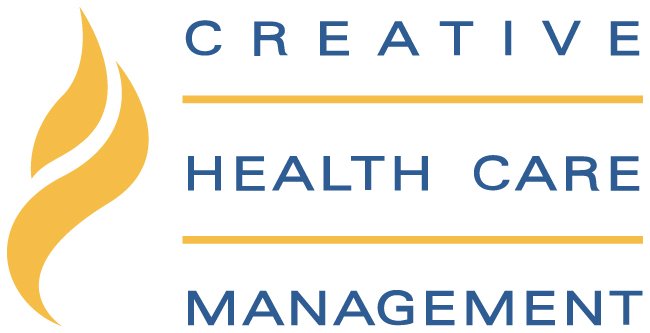Are you looking for a rewarding career in nursing? Do you want to take your passion for evidence based information, greater understanding of communication, practical ideas on hospital unit staffing, education, research and process and make a difference while growing professionally? If so, then consider nursing management as an opportunity.
As a nurse manager, you will have the chance to grow in your field and make lasting impacts on patients and their families. Nurse management encompasses many different roles, including overseeing day-to-day operations at hospitals and clinics, mentoring nurse leaders, nurse managers, nurses and other staff members, creating schedules and managing assignments, implementing policies regarding quality safety protocols, and more.
With all of these responsibilities come great opportunities to help shape the future of nursing while reaping the personal satisfaction of knowing that you’re making a positive impact each day. Read on to learn more about this viable option for those seeking an exciting role within their industry!

Understanding Nursing Management
Nursing management is a career field that requires an individual to possess a wide range of qualifications. Clinical and administrative knowledge is necessary to succeed in this profession. Nurse managers have the responsibility of providing direction and encouragement to the team. Besides ensuring the delivery of patient care, they must also have the ability to establish supervision and procedures related to staff management duties.
This challenging role can significantly impact the nurse manager, demanding sound knowledge across multiple care areas. Every day brings new opportunities for them to lead and motivate the support teams to deliver high-quality aspects in care and uphold standards of excellence within the clinic or hospital organization.
Ultimately, nurse managers guide their teams by demonstrating commitment and daily leadership qualities entailing integrity, respect, accountability, communication, and dedication.

Nursing Management Responsibilities
Nurse leaders, such as nurse managers or clinical coordinators, are accountable for various tasks and duties. Some of these include:
- Developing policies and procedures to ensure accuracy, safety, and quality in patient care
- Evaluating the effectiveness of the nursing staff
- Budgeting and maintenance of expenses related to nursing operations
- Communication with physicians, administrators, and other leaders
- Coordinating and supervising the process of recruitment, hiring, and training new staff positions
- Ensuring compliance with local, state, and federal regulations regarding patient safety
- Planning strategies to improve the quality of care and service
- Following the vision of the hospital or clinic and advocating for patient rights and interests in healthcare settings
- Reviewing professional development opportunities for nursing staff
Some nursing leaders also work with outside agencies or organizations such as Medicaid, Medicare, and other insurance providers to coordinate and manage complex cases and service.

Preparing for a Career in Nursing Management
Leadership functions in a healthcare setting require individuals to possess specific qualifications and experience. Additionally, this position goes way beyond having just a nursing degree. To achieve this role, you must combine clinical knowledge with leadership and business acumen to become a successful manager in your organization.
If you are interested in pursuing a career in nursing management, there are several steps to take:
1. Obtain a Bachelor’s or Master’s Degree in Nursing
If you aspire to become a nurse manager, obtaining a bachelor’s or master’s degree in nursing is essential to achieving your goal. With these degrees, you will develop the necessary expertise and proficiency to lead healthcare organizations effectively. This will enable you to seamlessly navigate the intricacies of the healthcare industry and overcome the challenges that come with it.
The program’s curriculum will also equip you with an in-depth knowledge of healthcare policies, ethical standards, and emerging practices, keeping you updated with the latest trends and developments in the industry.
Additionally, obtaining an advanced degree will open new opportunities for you, allowing you to explore various career trajectories within the healthcare sector.
2. Become a Registered Nurse
Once you finish your nursing degree, the next step is to become a registered nurse. You must clear the National Council Licensure Examination (NCLEX) and obtain a state-issued RN license to do so. These exams test your knowledge and competency in providing safe and effective patient care.
Once you have earned your license, you can choose from various healthcare settings, such as hospitals, clinics, nursing homes, and schools.
3. Work as a Nurse and Gain Experience
Working in the nursing profession will allow you to hone your skills and knowledge and enhance your expertise. This invaluable first-hand experience will teach you to think critically, manage time efficiently, work collaboratively with other healthcare professionals, and acquire better communication skills.
This hands-on experience is essential for any aspiring nurse leader, as it will help you develop the necessary skills and confidence to manage complex healthcare organizations.
Whether you become a charge nurse or take up a more advanced role, the experience you will gain from working in this field will prove invaluable when it comes to pursuing your goal of becoming a nurse manager.
4. Consider Additional Leadership Training or a Degree
As a nurse, gaining experience is the beginning of your journey toward advancement. If you aspire to take on more leadership roles in your workplace, consider pursuing additional leadership training or a degree. Not only will it sharpen your skills and knowledge, but it will also open up doors to new opportunities and higher positions.
Remember, leadership is not just a title; it’s a skill that requires ability and practice over time. With additional training, you’ll be equipped to handle the complexities and challenges of leading a team or even an entire department.
Moreover, your training and accolades will demonstrate your commitment to your profession and desire to improve professional and personal development continuously.
While this is an optional step, nurse leaders highly recommended following this path if you are serious about pursuing a career in nurse management.
5. Learn More About HIPAA (Health Insurance Portability and Accountability Act)
Knowing and following HIPAA is vital to avoid legal or financial issues as a nurse manager. HIPAA sets guidelines that shield patients’ personal health information (PHI), ensuring their information is securely protected so they have privacy even after leaving their doctor’s office.
Most nurse managers are well-versed in HIPAA regulations. You should know what information needs to remain confidential when assessing a patient or addressing inquiries from your staff regarding this matter. Knowing the right procedural pathway in advance can reduce misunderstandings and prevent future mistakes.
Familiarizing yourself with HIPAA will also help you better understand potential risks and avoid privacy-related legal issues.
6. Prepare for the Job Search
Now that you have built the necessary experience and knowledge, the next step is preparing for the job search.
Start by creating an impressive resume outlining your qualifications and skills. Be sure to include any leadership roles or responsibilities that were given to you while working in other fields or nursing. List any strategies or methods that have helped you become a successful nurse.
Although constructing an impressive resume is the most crucial step in entering the workforce, don’t forget about utilizing resources like networking groups, job postings, and any professional referrals from nurse managers you have worked with. These options can give you a better chance of acquiring a desirable position in your chosen field.

Tips To Keep in Mind When You Land a Nursing Manager Role
If you are already in a nurse manager role or are about to get there, these tips can help you make the most of it.
Have Clear Goals and Objectives
Nurse managers must have clear organizational goals and objectives for their team to create an atmosphere of trust and respect between leadership and staff.
Without clearly communicated objectives, people can miss their targets or fail to understand what is expected of them. It is your responsibility as a leader to ensure that each person responsibly employed by your organization is aware of these critical objectives. This will enable the team to collaborate effectively towards achieving all set goals and support each other’s growth within the workplace.
Clarifying expectations can also create confidence among local personnel who trust their hard work will be rewarded and noticed when they exceed the requirements.
Set a Positive Tone
The nurse managers’ tone for the team and work environment can enormously impact morale. You must ensure the workplace atmosphere is healthy and conducive to productivity, creativity, and collaboration.
Set a good example by being professional, approachable, and open-minded toward different perspectives. Showing that you are invested in the team and its success can go a long way toward creating an effective working atmosphere.
Further, consistency with your decisions and feedback is key to maintaining respect within the organization. This helps employees ascertain what is expected of them and how they will be held accountable for their actions or lack thereof.
Take a Proactive Approach
As a nurse manager, you are responsible for your team’s success. While delegating tasks and duties is essential to ensure that everything in your jurisdiction runs smoothly, you must also actively provide guidance and direction.
This can be done by having regular check-ins with each team member to monitor their progress and offering feedback or advice when needed. It would be best if you also were proactive in organizing training sessions and staff meetings that promote collaboration and provide educational opportunities to help employees increase their skill set.
Utilize Technology
Technology is becoming increasingly prevalent in healthcare settings and an invaluable resource for nurse managers. Leveraging technology to have access to reliable data and more efficient systems can help you make better decisions and allocate time more efficiently.
You should consider introducing digital platforms that allow for secure communication between staff members and patient records management systems for easy information sharing.
Having an accessible database of resources can also help your team stay up-to-date with the latest developments within the nursing field and keep an eye out for new opportunities that could benefit their career paths.
Maintain High Standards
As a nurse manager, you must uphold high standards for your staff and patients. This requires regular reviews of protocols to ensure they remain applicable to all relevant laws and regulations in your region. Keeping up with national or international guidelines and best practices in nursing is also essential.
Finally, keeping a close eye on safety measures within your organization is essential for protecting staff and patients from potential harm. Conduct regular inspections to evaluate the quality of care and implement any necessary changes promptly.

Conclusion
The responsibilities and roles of a nurse manager are demanding but also rewarding. Not only is there tremendous potential for growth within the healthcare field, but you also have the opportunity to touch patients lives profoundly and positively.
Whether striving for improved patient quality safety protocols or developing strategies to mentor and foster strong teams, you will find fulfillment in knowing your efforts will have potentially far-reaching benefits.
If you’ve ever considered taking on nurse management responsibilities, now could be the perfect time to explore this viable option!
Creative Health Care Management
Creative Health Care Management offers professional development opportunities for nurses and hospital staff on a variety of topics.
Contact our consulting team today if you want to learn more about how we work with hospital organizations and nursing management to improve culture transformation solutions.
Sources
https://www.indeed.com/career-advice/career-development/nursing-management
https://onlinenursing.duq.edu/blog/6-tips-for-success-as-a-nurse-manager/
https://www.cdc.gov/phlp/publications/topic/hipaa.html





